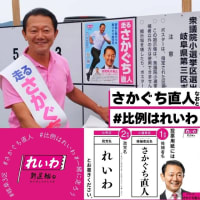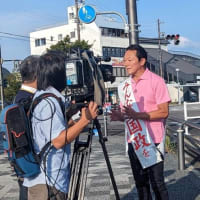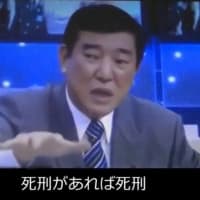日本政府の『人道支援』は、特に紛争地に関わることについては、政治的に決定され、ニーズ調査なども官僚的なプロセスで決められることが多いのが現実と感じています。一方、大きな組織に属さないジャーナリストやNGOの方々は社会・経済的リスクのみならず生命のリスクも感じながらも現地の人々のコミュニティーに飛び込み、言葉を覚え、本当のニーズを掴もうと頑張っている。この価値を認める日本社会であって欲しいと思います。
私の知人で国連難民高等弁務官事務所(UNHCR)のタジキスタン事務所に勤める松下千津さんが、イスラム国に拘束されている後藤健二さんの人柄を伝えるメール(日本文と英文)を送って下さいました。少しでも救出の力になるように、松下さんの了解を得て紹介します。(すでにfacebookでは紹介しています)拡散させて頂ければ幸いです。
以下、松下さんによる後藤健二さんについての追想(日本語および英語)
今朝、次のような英語のメッセージを私の勤務先である国連難民高等弁務官事務所(UNHCR)の同僚に向けて送りました。おそらく私と同じようにどこかで健二さんに出会っているであろう同僚たちに、彼のことを思い出して、祈りに参加してもらいたかったからです。
私が後藤健二さんに初めて会ったのは、当時は本当に小さかったUNHCRのアンマン事務所(ヨルダン)に勤務していた、2002年の秋でした。ある日、事務所代表に呼ばれて彼の部屋に行ってみると、優しい笑顔を浮かべた日本人ジャーナリストが待っていました。当時、アメリカ主導の連合軍がイラクのサダムフセイン政権への軍事攻撃をすることは必須と思われており、そうなると多くの難民が隣国ヨルダンに流出すると思われていたので、健二さんはUNHCR事務所代表に取材に来ていたのでした。その後、数ヶ月の間に大勢押し寄せて来た日本のメディアの方々と違って、UNHCRに来るのに日本人職員のコネ(私)をあてにするでもなく、自信に満ちた笑顔を浮かべた健二さんを前に、年は大して変わらないのにすごいプロフェッショナルだ、と、眩しい思いを持って話をしたことを覚えています。
その二年後の2004年、健二さんと文字通りばったりと再会したのは、UNHCRルサカ事務所(ザンビア)の廊下でした。彼は、その時佳境にさしかかっていた、アンゴラ人難民の母国への帰還を取材しに来ていたのでした。西部のモングに実際の帰還状況を映像におさめに行き、ルサカに戻ってきた健二さんと夕食を一緒にしました。モングで帰還事業を担当していた日本人女性スタッフの疲労を気遣った話をしてくれたことを、はっきりと覚えています。
その後は、共通の知人を通じて、また最近はソーシャルメディアを通じて彼の活躍を目にしていました。ここ数年は、シリアの紛争とその難民についてレポートしているのを知っていました。でも、彼はけっして、一面記事を求めてむやみに危険をおかすジャーナリストではない。純粋に、難民の人々の苦しみとか、難民の子どもたちの願いとかを、世の中の人に伝えようとするジャーナリストです。シリアへ入ることのリスクも良く知っていたし、万が一の最悪の事態に備えて準備もしていました。
今、一体自分に何が出来るのだろうかと考えると大変に苦しいですが、少なくとも、メディアで目にしている Kenji Goto、後藤健二という名前のジャーナリストがどんな人なのか、少しでも多くの人に知っていただき、そして私と一緒に祈りに参加していただければ本当に嬉しく思います。
松下千津

Dear colleagues,
Please allow me to send this around, but please also accept my apologies if
any of you are disturbed by this message.
I wished to request that you join my prayer for Mr. Kenji Goto's safe
release from his captivity, not because he is my compatriot, but because he
has been a great supporter of UNHCR and a friend of many thousands
refugees. He is one of the two Japanese hostages held by IS.
I first met him in the room of the UNHCR Representative at then-very small
UNHCR Amman Office in Jordan in the autumn of 2002. The representative
called me to come and meet with the Japanese journalist who came to
interview him about the potential human displacement in case of the
coalition forces' attack in Iraq (that was imminent). Unlike many other
Japanese journalists (of large media companies) who came to Jordan and
entered into Iraq afterwards, he did not need a "connection" of a Japanese
UNHCR staff to get in touch with the Representative. His friendly smile and
confident manner gave me the impression that he is a truly independent,
professional journalist (as his company name suggests – "The Independent
Press").
Two years later, in 2004, I literally bumped into Kenji-san in the corridor
of UNHCR Office in Lusaka, Zambia. He came to report on the voluntary
repatriation of Angolan refugees to their home country. He went to the
field, Mongu, to film the VolRep movement. After his return to Lusaka we
had a dinner. I clearly remember what he said over dinner – he was
concerned about the tired look of another Japanese staff in Mongu, a
Repatriation Officer, who was very busy organising the VolRep movements.
That was my last direct contact with Kenji-san, ten years ago. I only know
of his dedicated reporting career through word of mouths of mutual
acquaintances and the social media more recently. Obviously, he was
reporting a lot on the Syrian refugees over the past years. He is not one
of these reckless journalists who are hungry for risks and for top coverage
events. He genuinely wanted to let people know of human misery, plights of
refugees, and hopes of refugee children. He was absolutely aware of the
risks of entering into Syria and in a way, did all he could to prepare for
the worst.
I am sure that many of my colleagues have met and encountered with
Kenji-san in the past somewhere in the world, as I did.
I kindly ask you to remember him at this moment. And please join me praying
for his safe release, regardless of our religious backgrounds.
Sincerely,
Chizu Matsushita



















